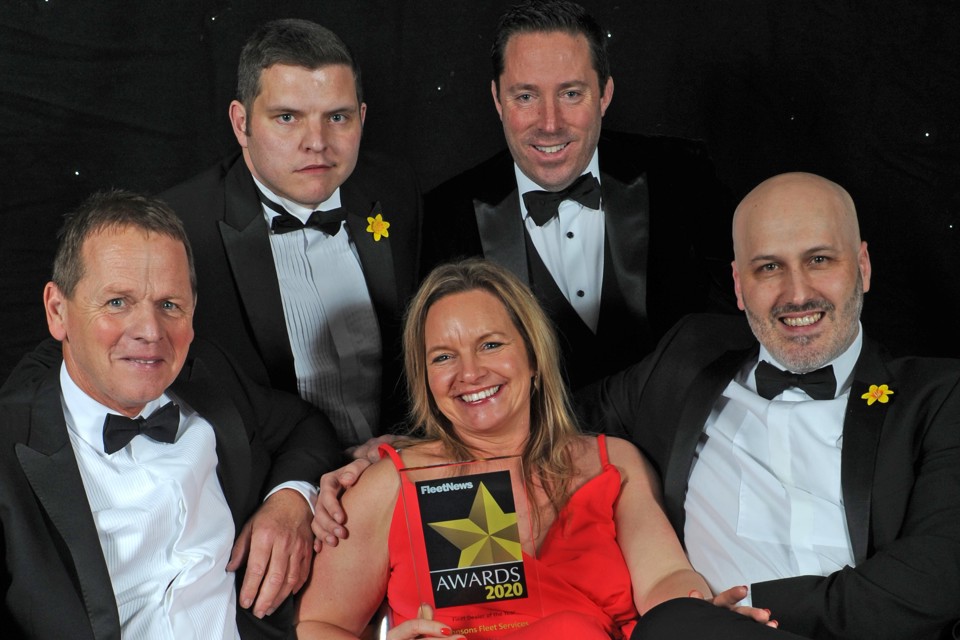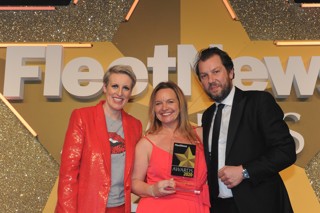Covid-19’s impact on Johnsons Fleet Services was, in common with every other UK business, considerable. New ways of working were required overnight as staff were furloughed, while those remaining had to fill their shoes, learning new skills and quickly absorbing knowledge to ensure they could answer the multitude of questions posed by concerned customers.
This response meant the business didn’t have to close during the pandemic.
While it has been difficult to maintain service levels, the pressure on staff extreme and the circumstances unprecedented, head of fleet operations Louise Baker said she and her team managed to cope because of their dedication to customer service, their industry experience and, most-telling, their understanding that fleet is in a constant state of change.
While extreme, the pandemic is another hurdle to overcome.
Johnsons Fleet Services is part of dealer group Johnsons Cars.
The retailer holds 15 franchises managed from its head office in Redditch.
Based in Tamworth, the fleet operation was founded 10 years ago and supplies about 11,000 cars per year, accounting for approximately 26% of all vehicle sales in the group (including new, used and Motability).
Fleet represents 41% of all new vehicle sales. Ninety-four of the 691 accounts held by JFS grew in volume in 2019, compared with 2018, with the largest customer representing just 8% of the operation’s total.
With volume spread across so many clients, customer care is essential from each of Baker’s 50-plus team.
It includes a national leasing manager, major account sales staff, local business sales staff, SME market account managers, preparation centre, the demo team, deliveries and accounts.
With each team member having an average length of service of nearly seven years with JFS – despite growing the team in the past three years, including the acquisition of four Volkswagen dealerships from Sytner in November – the business was well set to deal with Covid-19, Baker believes.
Just before lockdown the team won Seat and Škoda fleet retailer of the year awards for 2019. It had a lot to live up to.
We spoke to Baker about the challenges, how the business is coping, the near-future of fleet – and the benefits of winning a Fleet News Award.
Fleet News: When did the pandemic first impact the business and how did it adapt?
Louise Baker: I’d struggle with the exact timeline as we made so many changes so quickly. During the week of March 16, before the lockdown, a couple of staff began to work from home who hadn’t previously, but, on lockdown, we retained nine operational staff from a headcount of more than 50. The rest were furloughed. Despite the reduction, we’ve a very broad spectrum of knowledge among the operational team and so we retained all the necessary skills to be able to offer the full-service requirements. Regardless of the query, we had someone who could help customers. It was challenging to ensure that, but it’s been incredible how the staff who have worked through lockdown – and those that returned to work in the interim – have stepped up to the plate. They adapted their roles to meet business needs. Every question was answered within one working day. No one was doing their ‘normal’ job. The work ethic has been amazing.
FN: Did this adaptation come naturally or did it take your leadership to ensure it happened?
LB: To a large extent it came naturally. We have low staff turn with the consequence that we are very passionate about what we do, and very loyal. As far as the team was concerned it was essential to keep the business going, not damage anything we’d spent the past 10 years building since the start of the fleet operation, or let customers down. Everyone did everything at some point.
FN: What areas of the business did you prioritise as being essential post-lockdown?
LB: The first was having people available to answer questions. There was considerable concern from customers around scheduled vehicle deliveries that needed cancelling, delayed orders that had been made, or were due to be made. Additionally, some things didn’t change. The lockdown period included the switch to WLTP (Worldwide harmonised Light vehicle Test Procedure) CO2 values, plus a hefty increase in the road fund licence which came into effect on April 1. Being able to answer questions about the WLTP changes was a vast task, particularly from leasing company customers, all of which appeared to have some level of staffing. At some points, all nine of my team were dealing with this issue, under considerable pressure and over long working hours.
FN: How did you and your team cope with the workload and the longer hours?
LB: We’ve used online meeting platform Zoom a lot to ensure we maintained team interaction, both for working staff and those furloughed.
FN: When did it become apparent that Covid-19 had brought about a change to business operations and that you needed to adapt to maintain service levels?
LB: You couldn’t draw a line in the sand for that moment. We’re in a continuous period of adjustment and making changes all the time. When we couldn’t deliver cars, our focus was on talking to customers about existing contracts, and, since, we’ve continued to sell cars, new contracts. Now, despite the supply chain being a bit clunky, in the past three-to-four weeks manufacturers have been delivering cars to us. There isn’t a new normal. Changes and adaptation simply continue.
FN: How have you responded to the easing of lockdown restrictions?
LB: Thirty staff have returned to the office. I don’t know whether we’ll see everyone back, but we’re assessing the need to all the time. If we see there’s a need for more support in a particular area we will bring staff back. Deliveries stopped with the introduction of lockdown at the end of March, but we’re now back to normal.
FN: How were service levels during lockdown and have customer expectations lessened?
LB: We continued to adhere to our SLAs since we reacted very quickly to meet the new challenges. Expectations have changed, particularly around car delivery which is now contact-free with the car fully sanitised. But, on the other hand, they remain constant, delivering a good service with clear, relevant information. The lack of predictability is a challenge, but, since that is the same for everyone, it’s less of a specific issue.
FN: How has the vehicle delivery process changed?
LB: We’ve taken the needs of every customer into account and taken the strictest of their own codes and made it our process. Masks, gloves and the use of disinfectant go without saying, plus we use gearstick and steering wheel covers. Sanitisation is most important. We don’t want to put staff or a customer at risk under any circumstances. June saw delivery volumes return to near-normal, but had restarted in May with a focus on key workers.
FN: Do you expect to see a positive response in customer satisfaction levels as a result of your efforts since the March lockdown?
LB: I would like to think we’ve secured some additional loyalty. I don’t think we could’ve done any more to make ourselves available to our customers. For example, one customer emailed me at six o’clock one evening distraught because she and her husband had had both their cars stolen and ordered replacements just before lockdown, but we weren’t able to deliver them initially. So, theirs were the first cars we had delivered when we were able to. We spoke on a Thursday, they got the cars on the Monday. The additional measures needed to ensure a handover is safe has added to the emotional significance of the handover. I’ve had more emails complimenting my staff since March than I would have received in a year. It makes the effort worthwhile. And unusually during this time, customers have noticed the efforts of those they wouldn’t normally come into contact with, such as the administration team because they are handling the work of the sales person who is furloughed.
FN: The business has had to change under duress, but what has been the most positive outcome of the pandemic to the way you work?
LB: The realisation that you don’t need to be physically with someone to have an effective meeting. There will be changes in the business concerning flexibility of working from home and meetings over video rather than in person for internal and external meetings. Doing business is now on a path of continual involvement.
It was on this theme that Baker put Covid-19 into a wider context. Having worked in fleet for 24 years, she cannot recall a period of more than six months when processes remained unchanged.
“There’s always new technology, new thinking, challenges in the market, such as measuring CO2 or taxing vehicles,” she says. “The business has always to adapt. This is no different.”
Lockdown has also normalised the use of video conferencing that many would have been nervous about and resisted using. For example, videos explaining a car’s technology are now employed more comprehensively than before the pandemic as part of handover.
Baker sees a potential reduction in the importance of the company car as a result of employees only able to work from home and adapting video conferencing technology.
Job-need cars may be used less, she acknowledges, but to say they won’t be needed is a “stretch” and the popularity of the perk cars is likely to be unaffected, she feels.
The lasting positive of the experience for Baker has been seeing her team’s response that has been “humbling”.
“I knew they would be able to respond as required, but I’m still proud and grateful I have them around me.”
Judges’ comments
Ensuring its staff understand the needs of fleet customers helped Johnsons Fleet Services secure the Fleet Dealer of the Year award. The team in Tamworth has an average length of service of seven years, with expertise in all sectors. The head of fleet is continually evolving the operation to adapt to changing customer needs, while the national leasing manager develops and improves its service to contract hire companies.
Winning a Fleet News Award means ...
“There’s no greater recognition of a team’s success than winning a Fleet News Award. It’s important my staff’s contribution is recognised publicly and, as such, winning one was a career goal” – Louise Baker.




















Login to comment
Comments
No comments have been made yet.